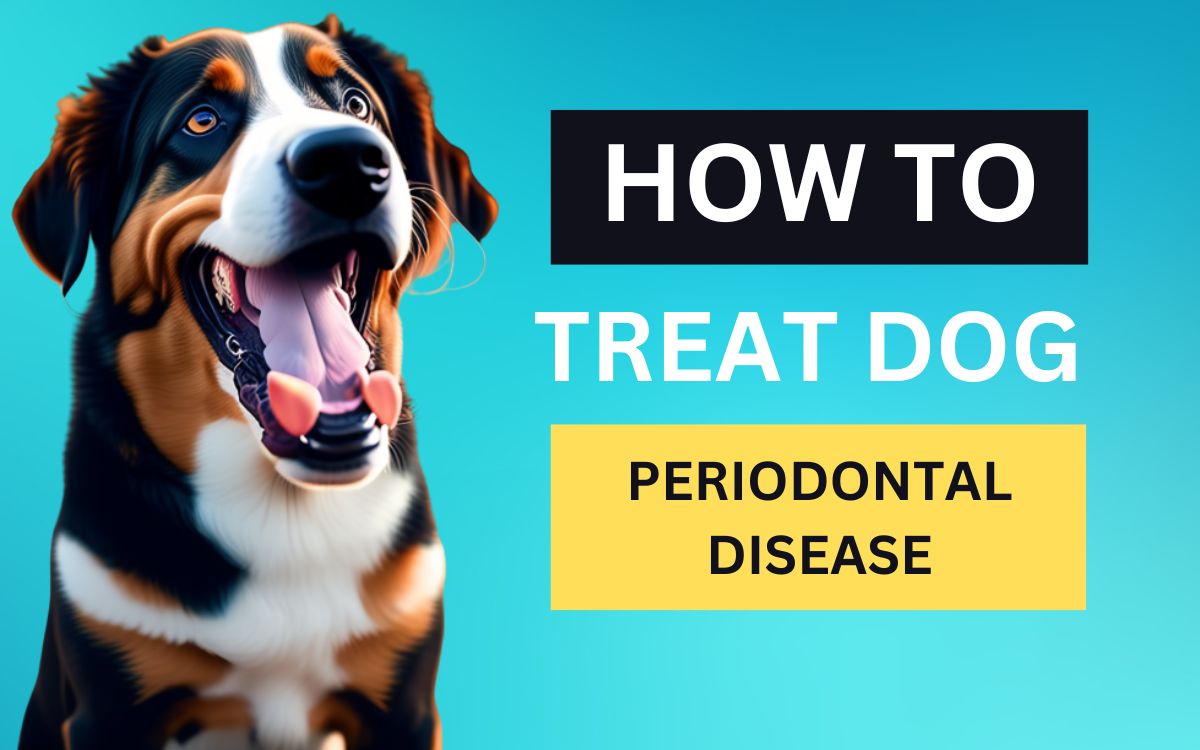Introduction
Neglecting periodontal disease in dogs is a common mistake that can have serious consequences for their overall health. We will explore in this article how to treat dog periodontal disease at home.
Just like humans, dogs need proper dental care to maintain good oral hygiene. While consulting with a veterinarian is crucial for an accurate diagnosis and treatment plan, there are various home remedies and preventive measures available to help enhance your dog’s oral health.
Table of Contents
Regular Brushing
Regularly brushing a dog’s teeth using a toothbrush and toothpaste made specifically for dogs is an extremely effective method to prevent and control periodontal disease.
It is important to start slowly, ensuring a positive experience for the dog, and rewarding them afterwards. Over time, increase the frequency of brushing until it becomes a daily or at least thrice-weekly routine.
Dental Chews and Toys
There is a wide range of dental chews and toys available to assist in maintaining your dog’s oral hygiene.
It is advisable to choose products that have been endorsed by veterinary associations and are specifically designed to minimize the accumulation of plaque and tartar. These items aid in eliminating debris and fostering healthier gums and teeth.
Dental Wipes
In case your dog is not cooperative when it comes to tooth brushing, an alternative option is to utilize dental wipes or pads specifically created for pets.
These wipes are formulated with beneficial ingredients that aid in minimizing plaque buildup and enhancing your dog’s breath. Simply and delicately massage the wipes onto your dog’s teeth and gums, ensuring every part of the mouth is covered.
Water Additives:
You can find dental water additives in stores, which can be added to your dog’s drinking water.
These additives typically contain enzymes or antimicrobial agents that fight against plaque and bacteria in the mouth. Make sure to use them as directed.
Diet and Nutrition:
Including high-quality dog food in your dog’s diet can enhance their oral health.
Certain dog foods are specifically designed to support dental health and prevent tartar accumulation. Moreover, incorporating dental treats or raw vegetables such as carrots can naturally aid in teeth cleaning.
Coconut Oil:
The oral health of your dog can greatly benefit from the natural antibacterial properties of coconut oil.
By applying a small quantity of coconut oil to a dog-friendly toothbrush or a piece of gauze, you can gently massage it onto your dog’s teeth and gums. This will not only help combat harmful bacteria but also reduce inflammation.
Herbal Remedies:
Adding herbs like parsley or mint to your furry friend’s diet can not only improve their breath but also provide them with some antibacterial benefits.
You have the option to sprinkle dried herbs onto their meals or give them as a tasty reward.
Regular Check-ups:
Although home care is important, it is imperative to make regular appointments with your veterinarian for dental check-ups.
By receiving professional cleanings and examinations, you can detect and treat periodontal disease in its initial phases, preventing it from developing into more serious ailments.
Conclusion
Dogs with periodontal disease can effectively control and even avoid the condition by practicing proper dental care at home and scheduling regular check-ups with their vet. Incorporating a daily oral hygiene routine, offering dental treats and toys, and exploring natural remedies can greatly enhance your dog’s oral health.
It is crucial to consult with your veterinarian to create a tailored plan that caters to your dog’s individual requirements. By being proactive, you can ensure your beloved companion enjoys a bright and cheerful smile for many years ahead.
Also, read this article. Should you put a dog down with vestibular disease?










